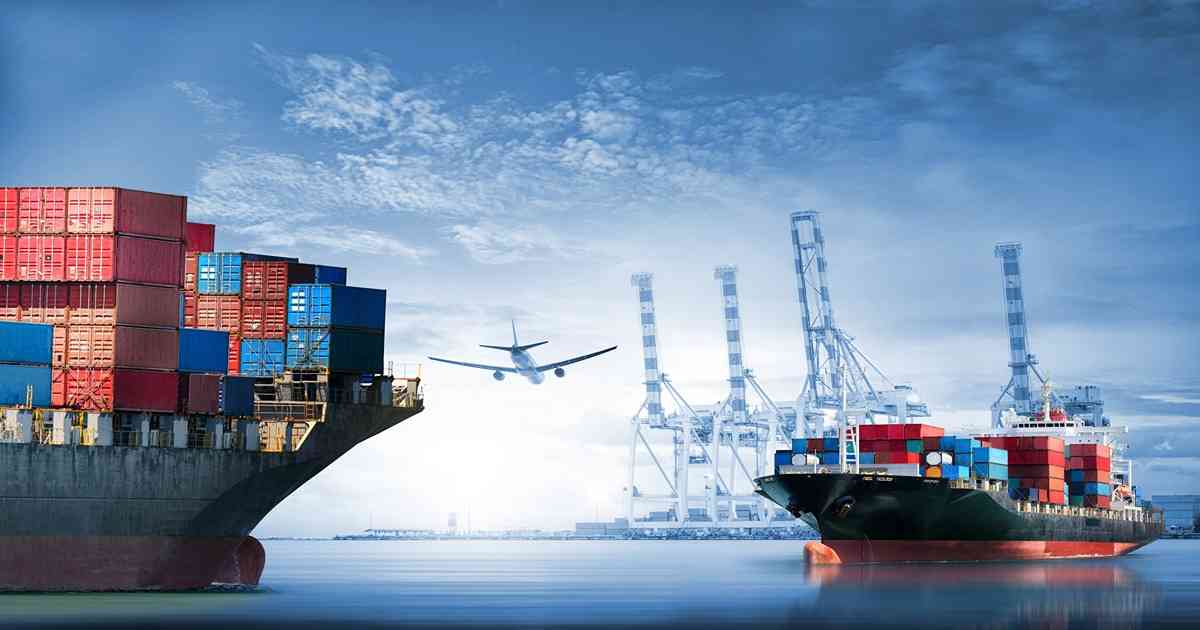
Transportation
Article | April 26, 2023
At Schneider Electric, meeting our customers’ expectations is a key priority. As concern over COVID-19 (Novel Coronavirus) grows, we are monitoring developments to this situation globally, as well as following local health and government regulations, continually assessing and responding to changes.
Our Business Continuity Plan (BCP) has been tested and implemented in geographies impacted. This plan includes health and safety, supply chain, lifecycle management services, and IT infrastructure.
Schneider Electric operations meet the criteria of an essential critical infrastructure as defined by most governments. While we do not anticipate interruptions to our operations, local governments may require temporary containment measures. In these cases, we comply with local laws, and in most cases seek support from local authorities to maintain critical business operations as an essential business for our communities.
Read More

Supply Chain
Article | May 22, 2023
Automated supply chain planning maximizes efficiency and helps achieve long-term success by addressing challenges, highlighting the benefits, and offering insights to optimize business performance.
Contents
1 Supply Chain Planning System Efficiency Maximization
2 Key Steps of Supply Chain Planning to Boost Efficiency
2.1 Implement Advanced Analytics Tools
2.2 Streamline Communication and Collaboration
2.3 Automate Processes
2.4 Consistency in Performance Improvement
3 Overcoming Major Challenges in the Process to Maximize Efficiency
3.1 Resistance to Change
3.2 Legacy Systems and Siloed Data
3.3 Inadequate Funding
4 Conclusion
1 Supply Chain Planning System Efficiency Maximization
To compete and succeed in an ongoing complex and dynamic global market, companies must maximize the efficiency of their supply chain planning systems, which help manage the flow of goods and services from suppliers to customers, optimize resources and information to meet customer demands and minimize costs and risks. An adequate supply chain planning system can increase customer satisfaction, profitability, agility, and risk management. Moreover, by reducing costs, increasing productivity, and enhancing responsiveness to market demands, maximizing efficiency can help businesses remain competitive. As a result, businesses can gain a substantial competitive edge and position the organization for long-term success by optimizing their supply chain planning systems.
2 Key Steps of Supply Chain Planning to Boost Efficiency
Businesses can significantly boost efficiency in their supply chain planning by implementing advanced analytics tools, streamlining communication and collaboration, automating processes, and ensuring consistency in performance improvement.
2.1 Implement Advanced Analytics Tools
Implementing advanced analytics in supply chain planning is key to improve supply chain efficiency. Advanced analytics tools, including demand forecasting, production planning and inventory management, can help organizations leverage large volumes of data to extract insights that enable better decision-making. The insights can be used to optimize production planning, reducing costs and increasing efficiency. In addition, it also enables businesses to detect and respond to supply chain disruptions on operations.
2.2 Streamline Communication and Collaboration
Managing and streamlining communication becomes essential for supply chain businesses, as it leads to greater agility and enables pipelines to adapt to changes in organizational structures. Leveraging cloud-based communication platforms, video conferencing, and collaboration tools enable real-time information sharing and collaboration across different teams and stakeholders. By enhancing communication and collaboration, businesses can better align their supply chain objectives, reduce communication gaps, and enhance decision-making.
2.3 Automate Processes
The integration of technologies such as order processing, inventory management, and shipment tracking under warehouse automation and logistics automation produces a vast amount of data, making it challenging for businesses to process data manually. To enhance efficiency, automating supply chain planning processes has become essential. Automating the process has eliminated multitasking, including managing goods flow, tracking road progress, and ensuring safe delivery, which was previously required in the manual process. By automating processes, supply chain management can be streamlined, leading to reduced lead times, minimized costs, and improved efficiency.
2.4 Consistency in Performance Improvement
Improving the supply chain is not a one-time fix, but a process that must be reviewed and optimized frequently. By implementing technology, businesses can continuously collect and analyze warehouse inventory management performance to identify areas for further efficiency gains and improved order accuracy. In addition, establishing a framework for continuous optimization involves regular performance reviews, feedback mechanisms, and benchmarking against industry best practices to help identify and address inefficiencies.
3 Overcoming Major Challenges in the Process to Maximize Efficiency
3.1 Resistance to Change
Supply chain planning systems are hindered by change resistance. Employees may resist change who are comfortable with the status quo and adopt new technologies and processes less often. Organizations need a comprehensive change management plan to address stakeholder engagement, communication, and training. Implementing a change management plan starts with identifying the key stakeholders and involving them in planning to gain their buy-in and support for the changes, implementing the process of the changes using different channels to reach all stakeholders and in addition, developing training programs to prepare employees for the changes and enable them to use new technologies and processes effectively.
3.2 Legacy Systems and Silos Data
Data silos and a lack of supply chain visibility are two problems that can arise when legacy systems and data are used. It also adds roadblocks in maximizing efficiency through supply chain planning software. Investing in older systems makes it challenging to gain a comprehensive view of the supply chain and informed decisions making. In addition, the systems are non-compatible with modern technology and data is stored in disconnected systems. With the help of an integrated system, all relevant information can be collected in one place, streamlining monitoring and decision-making. A data governance policy should be implemented to guarantee data quality and uniformity across all platforms. Data management, data storage, data sharing, regular monitoring and reporting on data quality are all essential components of this policy.
3.3 Inadequate Funding
Insufficient funding can affect supply chain planning system efficiency; with budget constraints, organizations may struggle to invest in new technologies, hire skilled workers, or improve processes. Thus, the supply chain planning system may become obsolete, increasing costs, lead times, and customer dissatisfaction. To overcome the challenge of inadequate funding in supply chain planning, organizations must prioritize funding and strategically allocate resources by identifying the areas that require the most investment. Exploring alternative funding sources, such as grants and partnerships, can supplement existing funding and enable organizations to invest in vital initiatives that may not have been possible with limited resources. In addition, cost-cutting measures, such as process optimization and automation, can help to stretch existing funds and boost productivity.
4 Conclusion
The supply chain planning system will continue to play a critical role in maximizing efficiency to revolutionize the supply chain professionals leverage emerging technologies such as AI, ML, and blockchain; understanding the process, identifying the challenges and overcoming them using the right strategies helps businesses in effective supply chain planning systems, gain a competitive advantage, improve supply chain performance and position themselves for long-term success. Furthermore, adopting a data-driven approach and a culture of continuous improvement in supply chain management planning can help organizations plan according to the future of supply chain and compete in the ever-changing global market.
Read More

Warehousing and Distribution
Article | June 16, 2023
The pandemic has had a significant impact on the logistics and shipping sectors, forcing businesses to rethink their supply chain tactics. Fresh COVID- Supply systems around the world are already under threat from 19 outbreaks. China's measures to stop the spread of Omicron by shutting down shipping terminals caused a lockjam of cargo ships. A similar scenario was seen in US and European ports that were congested as a result of a significant increase in cargo.
Additionally, these difficulties have been made worse by the tremendous staff shortage in the US. Although there are more job openings than before, the total strength of the workforce has taken a hit. A report by WNS and Corinium Intelligence reveals that over 60% of shipping and logistics organizations have amped up the automation aspect of their operations by two years. So, what does that mean for the future? In this article, we will talk about the four most promising trends that will define the shipping and logistics industry in 2025.
Live Monitoring Powered by Big Data and the Digital Twin Technologies
Big data is simplifying the ability to be agile, efficient, and cost-effective, and connectivity with other technologies and elements of the infrastructure is driving a real-time view of the supply chain further. Other innovations such as drones and self-driving trucks will contribute to this real-time update and processing of massive amounts of data. In addition, tracking software for freight will provide even greater visibility to customers and enterprises.
Automated Planning Through Collaboration Between Humans and Machines
Artificial intelligence (AI)AI in shipping and logistics has grown exponentially in areas of planning. AI applications are used to alter transportation and route planning. According to Gartner, by 2030, AI augmentation, will surpass other forms of AI application and account for 44% of all AI-powered value. Predictive alerting is a prominent example of augmented intelligence. Smart alerts based on predictive analytics can be used by logistics professionals to carry out a variety of crucial tasks, such as estimating truck arrival times, anticipating equipment maintenance and product damage, and organizing for a spike in demand.
Hyper-local Supply Chains
Enterprise will downsize and bring their supply chains onshore over the course of the next few years, ushering in the next generation of hyper-local logistics. The two forces driving this transition are the need to stay agile and resilient to counter disruption and meet challenging customer demands for same-day delivery. The global same-day delivery market is estimated to reach a value of USD 20.36 billion by the year 2027. This will cultivate a hyper-local service to meet the growing demand.
Sustainability
An emphasis on sustainability will be the highlight of the shipping and logistics industry. Enhanced connectivity will enable enterprises to optimize their human as well as robotic resources.
Future Forward
The shipping and logistics industry has been forced to accelerate their digital adoption and increase their resilience due to the uncertainty in the past couple of years. Establishing real-time visibility, leveraging human-machine collaboration, adopting hyper-local logistics, and improving sustainability are all ways that businesses are preparing for the future.
Read More

Supply Chain
Article | June 29, 2022
Purchasing software and supply chain management software are often mistaken for one another, but both have distinct functionalities. While purchasing software automates the procurement process, supply chain management software executes logistical transactions and manages supplier relationships. This report identifies the similarities and differences between the two software categories to help you understand which one is better suited to your needs.
What is purchasing software?
Purchasing software is an online tool that allows businesses to automate the process of procuring goods and services. It includes security compliance and reporting features.
Purchasing solutions offer integrated tools for invoice approval, inventory control, asset management, customer service, and work order management. They help manage contracts, analyze spending, track sales deliveries, and monitor inventory levels. They also assist in identifying bottlenecks in the purchase process, such as functions that have high expenditure.
Purchasing software offers invoice processing capabilities as well. Procurement professionals and accounting teams can use the tool to generate invoices, track invoice status, and monitor expenses via detailed reports.
What is supply chain management software?
Supply chain management software is a software platform that allows supply chain managers to automate the entire supply chain process—from acquiring raw materials to delivering the finished goods to consumers. The software provides tools for monitoring stock levels, including raw materials, and predicting future requirements based on the current inflow and outflow of inventory.
Supply chain management tools manage material handling, order fulfillment, and information tracking for stakeholders such as manufacturers, suppliers, and transport and logistics providers. They also track the returns of damaged goods, process refunds and insurance claims, and provide planning and forecasting tools for supply chain professionals.
What do they have in common?
Purchasing is a crucial component of supply chain management. Together, these processes significantly contribute to an organization’s procurement cycle. Despite the functionality differences, both the software categories have a few features in common, including supplier management, order management, and forecasting.
Which tool is right for you?
The answer to this question depends on your use case. If you’re looking for a tool that majorly focuses on acquiring supplies, opt for a purchasing software solution, as it will help you streamline the procurement cycle, maintain purchase order accuracy, and monitor supplier activities. However, if you wish to manage your entire supply chain operations, including supplier, transportation, warehouse, and inventory management, then investing in a supply chain software solution would be the right choice.
Read More